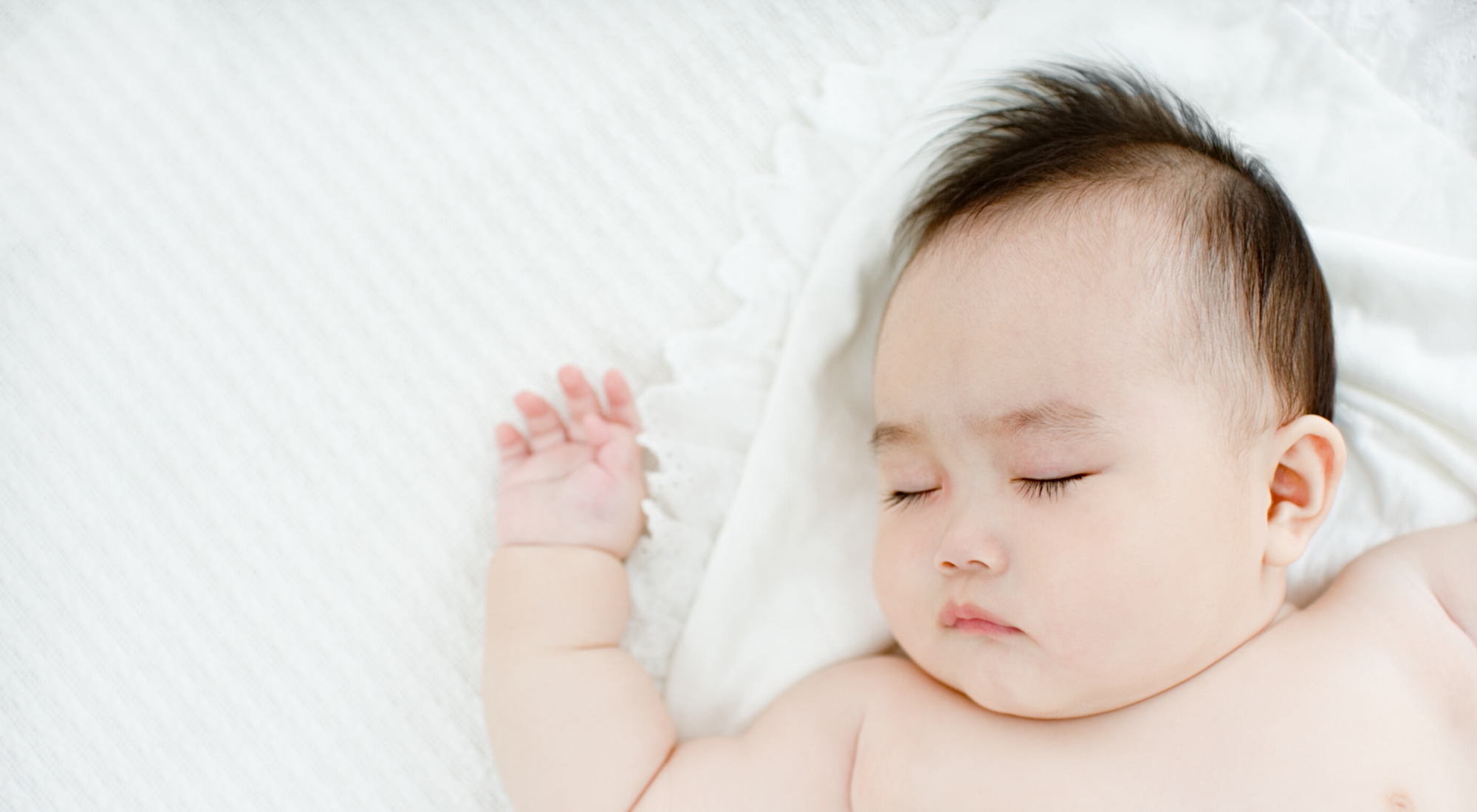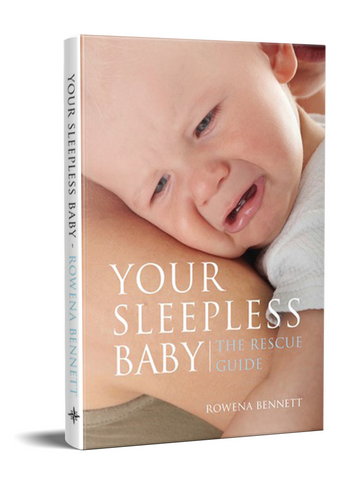
The Most Common Reasons Why Babies Wake At Night
We all know it's normal for babies to wake at night. However, some babies wake excessively or remain awake for unusually long periods of time during the night. Find out what causes baby waking, settling and sleep problems at night.
Causes for babies waking at night>
Like many exhausted parents you would understandably be eager to discover how to get your child to sleep through the night. However, before this can be achieved it's important to understand why babies and children commonly wake through the night. Pinpointing the reason, or more commonly reasons, your child wakes during the night will enable you to respond appropriately to his nighttime needs.
1. Normal sleep pattern
It's normal for all humans, babies, children and adults, to awaken many times during our sleep. Brief awakenings between sleep cycles are essential for our survival (see Infant sleep patterns). No baby sleeps through the night, but some babies reach the stage where they can settle themselves back to sleep without disturbing their parents sleep.
2. Hunger/Thirst
Hungry newborns naturally need to be fed every 2 to 4 hours overnight. By 3 months of age some babies may go up to 6 or even 8 hours without feeding overnight; while others may continue to feed 2 or 3 times overnight until the age of 6 months or beyond.
Many babies will cease overnight feeding on their own accord; however some healthy, thriving babies over 6 months continue to seek overnight feeding for weeks, months or even years beyond an age when overnight feeding is necessary to meet their nutritional needs. The reason is may be due to a sleep association of feeding to sleep OR because the child's internal body clock continues to trigger hunger signals at these times.
3. Sleep associations
Parents often intentionally or unintentionally assist their child to fall asleep. Once dependant on this help this becomes a sleep association for the child. A baby or child who relies on a parent's help to fall asleep may also rely on the same help to return to sleep when they wake between sleep cycles during the night.
4. Discomfort
A child may wake due to physical discomfort. This may be due to a wet or dirty diaper, feeling too hot or too cold, teething, a sudden loud noise, uncomfortable clothing, becoming entangled in bed clothing OR any number of other possibilities.
5. Illness/medical conditions
Any illness can result in more frequent nighttime awakenings. Understandably, children cry out to be comforted by parents when they are sick. Common medical conditions which may result in frequent overnight awakenings can include...
- Obstructive sleep apnea - due to enlarged adenoids.
- Epilepsy - minor seizures can occur on falling asleep or waking.
- Asthma - may result in breathing difficulties, such as a wheeze and nighttime cough.
- Urinary tract infections - may cause pain when the child passes urine.
- Any illness or condition - resulting in nasal congestion or a cough may disrupt sleep.
- Esophagitis - due to severe heartburn from gastro-esophageal reflux.
- Severe eczema - with results a child scratching itchy skin.
6. Developmental stages>
Children often wake parents more frequently when they are learning a new developmental skill, such as rolling, sitting, standing, crawling or walking. Unfortunately for parents, many children choose to practice these new-found skills during the night.
If a child sleeps on their back they often learn to roll from back to front long before they can roll from front to back. If a child is a tummy sleeper this may be reversed. They also learn to pull themselves into a standing position before they have figured out how to get back down. As a result a child will often cry out to parents in the night because they are "stuck" in a position they don't know how to get out of.
7. Separation anxiety
Most children experience some degree of anxiety when they are separated from the person with whom they are emotionally attached, (this may be a one or both parents or a caregiver). Each child may be affected by separation anxiety to varying degrees depending on his/her temperament. Some children will become extremely distressed as soon as their parent or main caregiver is out of their sight.
The onset of separation anxiety generally begins around the age of 6 months, peaks at around 9 to 10 months, starts to reduce in intensity by around 15 to 18 months but may continue for anything up to 2.5 to 4 years. During this time a child may cry out for their parent or caregiver during the night, when they awaken between sleep cycles, because they need to be reassured that they are not alone.
Many children don't know when they are tired and can go and go until the reach a point of over-tiredness. An overly-tired child may experience difficulty 'switching off' in order to fall asleep and may wake more often during the night (See How much sleep do children need?). Encouraging healthy daytime sleep habits encourages healthy nighttime sleep habits.
9. Lack of routine
Our internal body clock is the 24-hour day/night-activity/rest cycle to which our bodily functions are set. At regular intervals during the day we tend to become tired, hungry, active, listless or energized. A child's body clock is influenced by the environmental and sensory cues parents provide.
Ideally a child (over 6 months of age) will have their longest sleep during the night. However, sometimes a child's body clock can become 'out of synch' with parent's day/night pattern, although a child may be getting enough sleep it may be at the wrong times. You may suspect this problem if your child...
- Has long naps during the day e.g. 3 hours or more.
- Refuses to go to bed until very late at night.
- Sleeps in well into the morning.
- Is regularly awake for long periods around the same time during the night.
10. Nightmares and night terrors
Around the age of 2 years many children begin to experience increased wakefulness due to nightmares or night terrors.
11. Fear
Young children don't know what's real and what's not. Children can become fearful of anything they don't understand i.e. violence or scary images on television or from observing domestic disputes. Most children will at point develop a fear of monsters in their bedrooms. Fear of the dark is also normal for most children around the age of 2 years.
12. Stress
Just as adults experience sleep disturbances related to stress so too can babies and children. Babies and children can be affected by a stressful environment. A child may experience stress while adapting to changes, such as moving house, a new baby in the family, visitors staying with the family, a new babysitter or starting a new daycare.
Written by Rowena Bennett.
© Copyright www.babycareadvice.com 2024. All rights reserved. Permission from author must be obtained to copy or reproduce any part of this article.
Your Sleepless Baby book
In my book, ‘Your Sleepless Baby: The Rescue Guide’, I explain how babies sleep; how parents influence their baby’s sleep; and the type of support babies require from parents to sleep well.
Information is provided on a range of effective solutions to various infant sleep problems, including those related to sleep associations. There are step-by-step instructions for each problem and solution. Included are recommendations on how to make bed-sharing work, and 6 ways to encourage baby to sleep independently in a crib. There are options that range from gradual methods, which minimize baby’s upset, through to quick methods that are more upsetting for baby in the short term but which resolve any distress associated with chronic sleep deprivation much sooner.
There is also information on how to identify and manage the many medical, behavioral and developmental reasons for infant sleep problems including circadian sleep problems (the second most common cause of infant sleep problems).

